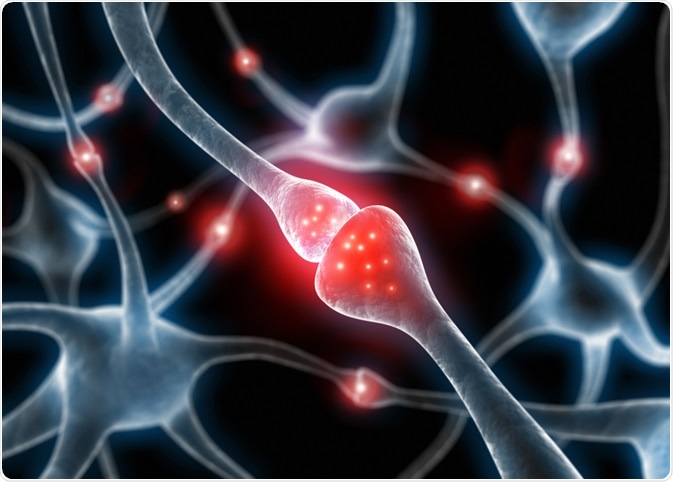Cancer pain is an unpleasant sensory or emotional experience that occurs in patients with cancer due to actual or potential tissue damage. Although not all cancer patients experience pain, up to 50% of patients undergoing cancer treatment report symptoms of pain, and the vast majority of patients with advanced cancer suffer from pain.
 Image Credit: peterschreiber.media / Shutterstock.com
Image Credit: peterschreiber.media / Shutterstock.com
Types of cancer pain
There are various types of cancer pain, according to the cause of the pain experienced. It may be caused by the cancer itself, or result from therapies used to manage cancer.
- Nerve pain, also known as neuropathic pain, occurs as a result of damage to or pressure placed on the nerves or spinal cord and is usually described as a sharp, burning, shooting or tingling pain. It may present following surgery, treatment with chemotherapy or radiotherapy, or as a result of tumor growth obstructing the nerves.
- Bone pain, sometimes referred to as somatic pain, can occur if the cancer spreads to the bones and causes damage to the bone tissue. This may be localized to a particular region or affect several areas and is often describes as a dull, aching pain.
- Soft tissue pain is sometimes known as visceral pain and results from damage to muscles, connective tissues or organs in the body. The characteristics of this pain can vary from sharp to throbbing.
- Phantom pain occurs when pain is experienced in a part of the body that has been removed, such as a limb that has been surgically removed due to sarcoma. The exact cause of this pain is unknown, but it is common with more than half of patients that have had an arm or leg removed experiencing pain in the region.
- Referred pain occurs when pain is experienced in a region of the body that is distinct from the place of origin. For example, damage to the liver may result in an uncomfortable sensation experience in the right shoulder, on the opposite side of the body, due to the interplay of nerves.
Cancer pain may be acute or chronic, depending on the type and origin of the pain. A particular injury to the bodily tissues that causes damage, such as during a surgical procedure, tends to cause acute pain that eventually heals. Chronic pain is usually caused by damage to the nerves involved in pain signaling pathways, which may originate from a tumor obtrusion or therapies used in cancer management.
Ways to Treat Cancer Pain
Secondary effects of cancer pain
Cancer pain can have a significant impact on quality of life and can affect the ability of an individual to take part in normal daily activities. Some patients may find it difficult to complete simple tasks and take care of themselves due to cancer pain, such as difficulty with personal hygiene, shopping, cooking, sleeping and eating. As a result of this, many patients become frustrated and feel lonely, angry or irritable.
Management of cancer pain
It is important that adequate methods are employed in the management of cancer pain, as uncontrolled pain is more likely to develop into chronic pain. Keeping a pain diary can help patients to keep track of and the pain to be managed most effectively.
Analgesic medications are usually recommended as a first-line approach to manage both acute and chronic cancer pain. This may include paracetamol, ibuprofen, aspirin and other medication available over-the-counter. Prescription medications containing weak or strong opioids can provide stronger relief for more severe pain.
It is important that patients are aware of breakthrough pain, which involves an increase in pain severity for a period of time, and have a management plan in place. In most cases, this simply involves additional pain relief medication that is reserved for when pain peaks.
Some patients also find benefit from therapies, such as acupuncture, acupressure, massage, physical therapy, relaxation and meditation.
References
Further Reading
Last Updated: Aug 12, 2022